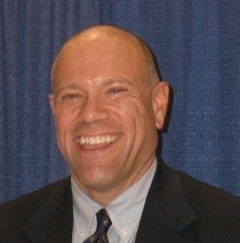
West side of the Mendoza College of Business. Photo by Matt Cashore/University of Notre Dame University of Notre Dame
According to the University of Notre Dame’s most recent First Destination Report (published in 2016), finance graduates from the Mendoza College of Business claimed second place for highest starting salary across all majors in the university’s graduating class. With a median starting salary of $72,000, these newly minted finance alums tied in second place with computer engineering grads, yet they edged out other top-earning majors including mechanical engineering and aerospace engineering.
Looking at just the business school — ranked fourth on Poets&Quants’ 2017 list of Best Undergraduate Business Programs — finance grads came out well ahead of all the other majors. Those going into IT management self-reported a median earning salary of $64,000, management consulting $60,000, and accounting $59,000. Marketing students self-reported a median starting salary of $55,000.
By far, finance appears to be the most fruitful. But the glamour and appearance that finance is the only way to land a rewarding career has the admissions team concerned about an over-focus on getting finance jobs and similar misconceptions in business education.
Poets&Quants for Undergrads spoke with Raymond Vander Heyden, the assistant director of Notre Dame’s centralized Center for Career Development and learned how the school is grappling with these misconceptions. In this in-depth interview, he shares Notre Dame’s approach for prepping students for the job market and how his office helps students balance exploring their interests and passions in an era where accelerated recruiting practices are taking business schools by storm.
P&Q: What’s Notre Dame’s approach for prepping students for the job market?

Raymond Vander Heyden is assistant director at Notre Dame’s Center for Career Development. Photo courtesy of the University of Notre Dame
Vander Heyden: Notre Dame Mendoza is a great school, but at the career center we encourage students to get involved in other organizations. You’ll learn a lot.
The Student International Business Council is one of them. This organization does real-life projects and there might be 50 or 60 companies per semester. It’s open to any major and students are divided into teams to work on projects for the companies. The teams may be comprised of business students, economics students, engineering students. This is great because most jobs are cross-functional, right?
I think it gives students the opportunity for hands-on learning, to learn about collaboration, and younger students get to learn from older students. They present to a panel from that company, typically in the company’s headquarters city.
There are lots of organizations like this. There is a Wall Street Club. Then there are probably five or six investment clubs on campus. Consulting Connect is another one. They bring in consulting companies to talk about case interviewing and how to prepare for that. Students help and practice with one another.
Each of these student clubs are non-credit bearing. These co-curricular activities really give students a great opportunity to explore different things and learn how to work with a team. It also helps address some of the accelerated recruiting we’re seeing from companies.
We also encourage them to join organizations they just have an interest in. It’s not just business. If you’re interested in chess, join the chess club. You’ll learn how to work within a team, maybe even get a leadership position.
Use this time to pursue things you’re interested in because you won’t have much of an opportunity in the next five to 10 years to do so. You’re also going to learn skills you can apply in your career.
P&Q: What do you wish students would change when it comes to career planning?
Vander Heyden: I wish they’d do more exploring and discerning. Certain careers sound glamorous such as investment banking and consulting. Certainly those are great careers, but there are so many more options beyond that. I have no problem if you really looked at it and want to go into it, then great. But, do you know what a career in professional sales means? It’s not standing in a mall selling cell phones. There are great careers and sometimes they don’t sound as glamorous. That’s why we have panels in corporate finance, professional sales, and things like that to get our students exposed.
P&Q: What’s the biggest mistake students make in their career planning?
Vander Heyden: I think certainly we’ve always encouraged students to do the due diligence before the interview. Not only the company but the industry they’re interviewing in so they can have a good conversation. Know the trends and the major news about the company. Things like this are important so they can have a good conversation, ask some insightful questions, and make an informed decision.











Questions about this article? Email us or leave a comment below.